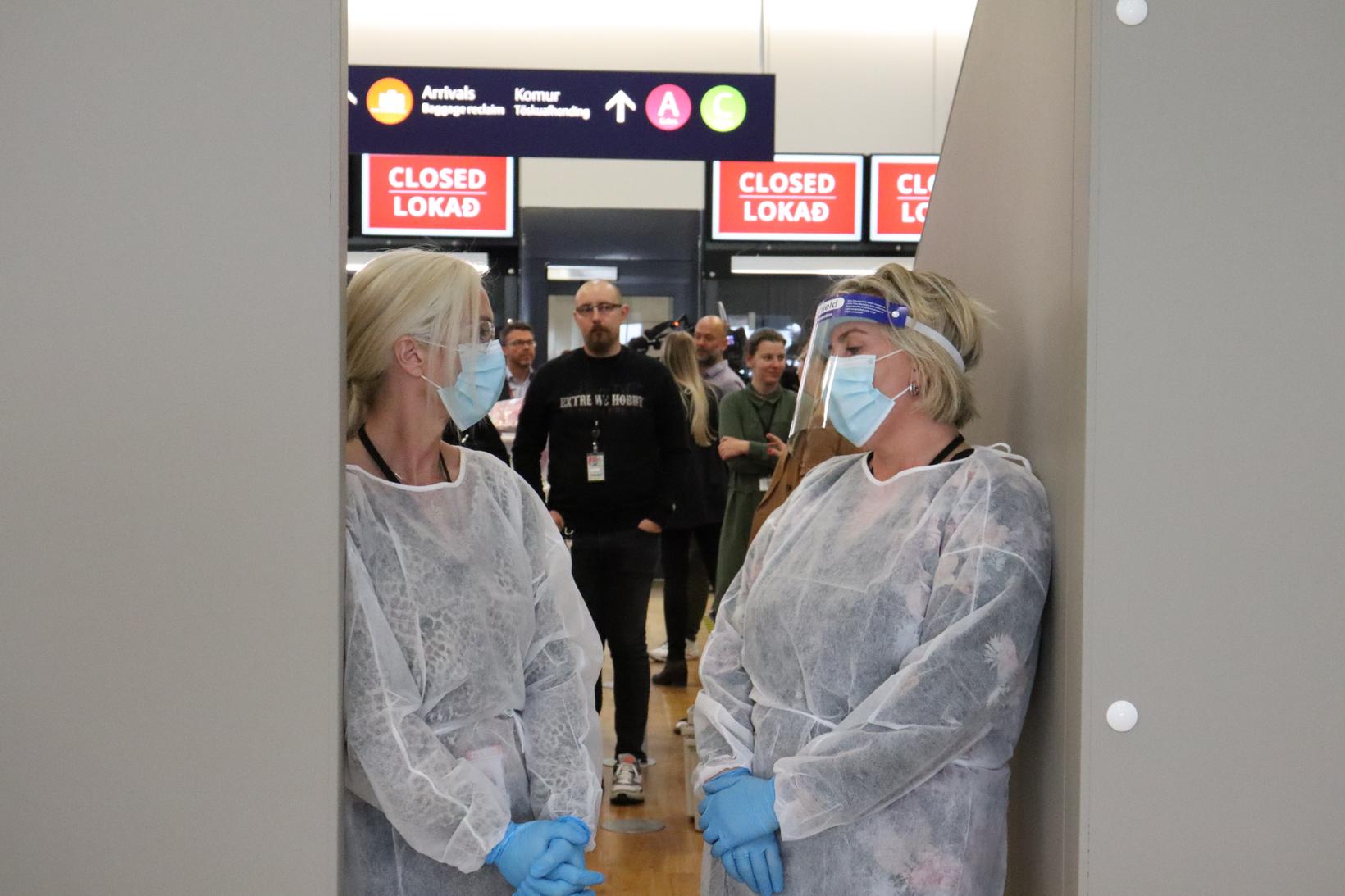What Happens If Passengers Refuse to Be Tested at Border?
Possible changes to a regulation regarding border testing for the coronavirus in Iceland are being examined, mbl.is reports. Among the things being examined is the legal basis for requiring arriving passengers to spend 14 days at a quarantine facility if they refuse to be tested for the virus and opt instead for a 14-day quarantine, according to Iðunn Garðarsdóttir, assistant to the minister of health.
Chief Epidemiologist Þórólfur Guðnason has suggested to Minister of Health Svandís Svavarsdóttir that those who refuse to be tested at the border be required to spend 14 days at a quarantine facility. At yesterday’s press conference , he stated that double testing for the coronavirus at the border has played a crucial role in limiting the spread of the pandemic in Iceland.
He advised Icelanders to avoid any nonessential travel abroad, due to the rapid spread of COVID-19 abroad.
Chief Superintendent Sigurgeir Sigmundsson, at Keflavík International Airport, tells mbl.is that transporting passengers from the airport to a quarantine facility would not be complicated. If, however, arriving passengers not only refuse to be tested, but refuse to go to a quarantine facility as well, Sigurgeir states they could be denied entry into the country if they do not reside in Iceland.
So far, arriving passenger have had a choice between being tested twice (first, upon arrival and again four to five days later) and spending 14 days in quarantine. Few people have chosen the latter option, and still fewer are expected to choose that option if it involves a mandatory stay at a quarantine facility.



/frimg/1/57/87/1578747.jpg)


